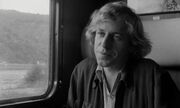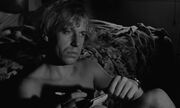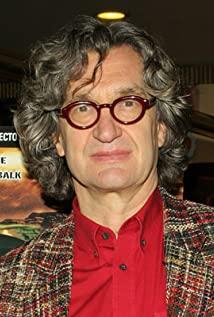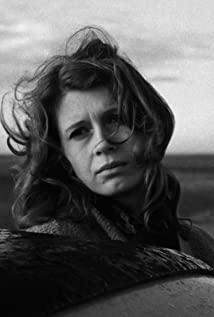2018.5.16 Yu Xian Er
Written on the front: I was a little excited after reading it, because I saw some shadows of "Zoom".
Camera language
Road films, there are always some scenes on the road.
On the one hand, such scenes in this film are slow-paced and patiently browsed, with a wobbly poetic feel;
On the other hand, there is a decadent, uninhibited and a little carefree temperament of rock music.
It may be the influence of the characters' personalities, or it may be due to the creation of the overall atmosphere. The shots of the whole film show a melancholy and poetic feature. This also sets the tone for the style of the entire film.
reporter winter
He's always on the road - always taking pictures with his Polaroid - always looking for evidence of his existence .
This state is very similar to Thomas, the protagonist photographer in "Zoom In", holding a camera around and taking pictures.
They are lifeless, purposeless, hopeless.
They both have an ambivalent attitude of dependence and disdain towards sex.
If speaking differently, Thomas is trying to find the border between truth and fantasy through photography, while Winter is trying to capture reality, reality, evidence of his own existence through photography.
Thomas was always alone, he was lonelier, more wanton, and despised everything. (I can often associate my state with Thomas's, which is a more habitual human situation.)
And Winter is more poetic, melancholy, and more importantly, he has an Alice. Alice wasn't an angel, or even a flawed little devil, but she made Winter feel the real existence of life.
Winter tried to use photography to capture reality, to prove existence,
But he also realizes that photos can never capture reality. Or that he can't prove his existence through photos.
He initially refused to write down.
I think it may be because the words or words are too fragile, and even if they try to be objective, they still carry a strong personal color. So it's not reliable, and Winter doesn't believe it.
So he opted for a form that seemed "completely objective" - taking pictures.
Similarly, Bazin believes and believes that the relationship between the film image and the real object formed by the film machinery that excludes the human subjective factor to the greatest extent is close to the same and the same, and the real object can be separated by the principle of the film camera. realistically reproduced.
But in fact this is not accurate. First of all, people’s understanding of objective time and space is constantly expanding and unstable; secondly, cameras are controlled by humans and cannot be freed from human influence, so they are not objective and neutral; in addition, our cameras are inherently Complete reducibility and imitation cannot be achieved.
So Winter later went back to the transcript.
On the one hand, he has discovered his own existence, and more importantly, he is willing to start admitting and expressing his existence.
Here's Winter's take on TV.
This is also his view of this modern civilization.
The tour in the United States and the walk in the modern metropolis New York brought him more and more confusion and depression - Lost.
Later, he found proof in the German countryside, which probably reflects the author's attitude.
Both Thomas in Zoom and Winter here have very complex attitudes towards sex.
On the one hand, they depend on sex. This dependence is not due to the feelings of men and women, but because of the need for self-existence. This reminds me of the conversation between the captain and his wife Lola in Strindberg's "Father."
"Captain, I grew up beside you, admiring you like someone with a higher intelligence, and listening to your advice like a naive child.
Lola...I am ashamed whenever your feelings change and you appear to me as a lover; I am delighted when you embrace, and then a reproach of conscience follows, as if my blood was ashamed. Mother turned mistress, how scary! "
Alice asked Winter: "Can you not sleep with other people?"
Both Captain and Winter are equally, singularly, in a desperate need for women, although the reasons for this need may be different.
On the other hand, they all have a stern, side-by-side attitude toward sex, not making any connection to emotion. And what they hoped for from it will probably never come true.
alice
Before Alice took this picture of Winter, all of Winter's photos were of no people and only objective scenes. He has also been looking for truth in these objective scenes.
But he didn't "see himself" until he saw this photo of Alice's headshot of Winter.
Alice is not a little angel with the purpose of redemption, not even a good little girl.
She is naughty and even naughty, and is used to speaking frankly.
But at the same time, she is also a little girl who has been neglected for a long time and her life has been displaced.
Two people who were both abandoned by society, in each other's "torture" and companionship, actually became dependent on each other, and both gradually turned from disapproval of themselves to recognition of their own existence.
Below are some cute clips of the two getting along.
Compared with Antonioni, Wenders is still kind. He let the two Lost people exist and prove each other.
Although we don't know what the road will be after they separate and return to their original lives, there is still hope.
In "Zoom In", he is completely alone with everyone and falls into an illusory imagination.
View more about Alice in the Cities reviews










